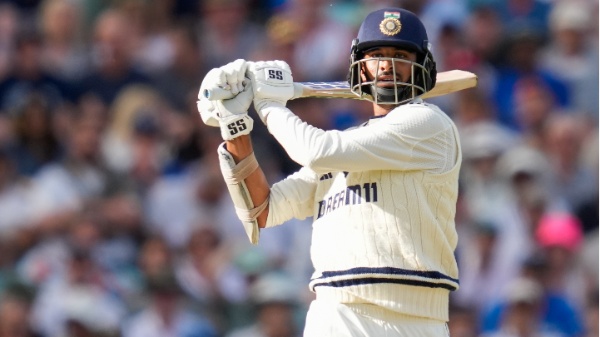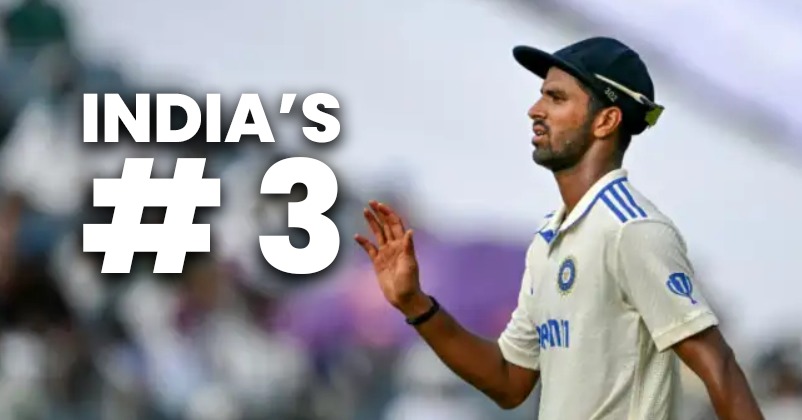India’s search for a reliable No. 3 in Test cricket has taken an unexpected turn and it now seems the team is looking beyond B. Sai Sudharsan for the moment. Sudharsan, who made his debut earlier this year in England, has not been able to make a convincing claim to the spot, scoring 273 runs in nine innings at an average just over 30. The team also tried Karun Nair at the position but his four innings brought only 111 runs, leaving the slot just as unsettled as before.

This uncertainty opened the door for Washington Sundar, a player more commonly seen in the lower middle order. During the recent Kolkata Test against South Africa, Sundar was asked to bat at No. 3 in both innings on a pitch where runs were hard to come by. India eventually lost the match by 30 runs but Sundar’s efforts stood out. He fought through difficult conditions to score 29 from 82 balls and 31 from 92 deliveries, showing patience and technique that hinted at a deeper batting potential than many had previously seen from him.
His growing reputation with the bat has not gone unnoticed at the franchise level either. Gujarat Titans, for whom Washington Sundar plays in the IPL, recently traded Sherfane Rutherford to Mumbai Indians in a move that surprised many. Assistant coach Parthiv Patel explained that the team’s confidence in Sundar has grown significantly over the past year and that was a key factor behind the decision.

As excitement builds around Sundar’s improved batting, former India wicketkeeper-batter Dinesh Karthik has voiced a concern that adds a human layer to the discussion. He worries that shifting Sundar into a specialist batting role could take a toll on his off-spin, a skill that has been equally valuable to India. Sundar has already scored 821 Test runs at an impressive average of 43.21, including a century and five fifties, while also taking 35 wickets at an average of around 30.34.
Dinesh Karthik believes that asking him to occupy such a demanding batting position may force him to dedicate far more time to batting practice, leaving less space to maintain and sharpen his bowling.
Dinesh Karthik suggested that the message being sent to Sundar is clear — India wants big runs from him. And while that ambition is understandable, he fears it might eventually harm Sundar’s progress as a bowler. He considers the balance “tricky”, especially for an all-rounder who has to divide time and energy between two disciplines that both require heavy training loads.

Adding weight to his concern was India’s own handling of Washington Sundar in the Kolkata Test. Despite the pitch offering plenty of help for spinners, Sundar bowled only one over across both innings. Instead, India leaned almost entirely on Kuldeep Yadav, Ravindra Jadeja and Axar Patel for their spin attack.
As India continues its search for a dependable No. 3, Washington Sundar’s rise offers promise but it also opens up an important question — how much responsibility can one player be asked to carry without compromising what already makes him valuable?



